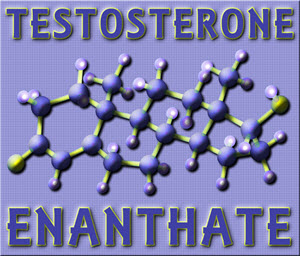 Libido is a person's overall sexual drive or desire for sexual activity. It is influenced by biological, psychological, and social factors. Biologically, the sex hormones and associated neurotransmitters that act upon the nucleus accumbens regulate libido in humans. (The nucleus accumbens (NAc) is a small area of the brain that is involved in reward, motivation, and addiction. It is located in the basal forebrain, which is a part of the brain that is involved in movement, emotions, and learning. The NAc receives input from a variety of brain regions, including the prefrontal cortex, the amygdala, and the hippocampus. It sends output to a variety of brain regions, including the motor cortex and the hypothalamus. The NAc is activated when we experience rewards, such as food, sex, or drugs. It is also activated when we anticipate rewards. This activation is thought to be responsible for the feeling of pleasure that we experience when we do something that we enjoy. The NAc is also involved in addiction. When we take drugs that activate the NAc, we experience a surge of pleasure. This surge of pleasure can be so powerful that it can lead to addiction. The NAc is a complex structure that is involved in a variety of important functions. It is a key player in our reward system, and it is also involved in motivation, addiction, and learning.)
Libido is a person's overall sexual drive or desire for sexual activity. It is influenced by biological, psychological, and social factors. Biologically, the sex hormones and associated neurotransmitters that act upon the nucleus accumbens regulate libido in humans. (The nucleus accumbens (NAc) is a small area of the brain that is involved in reward, motivation, and addiction. It is located in the basal forebrain, which is a part of the brain that is involved in movement, emotions, and learning. The NAc receives input from a variety of brain regions, including the prefrontal cortex, the amygdala, and the hippocampus. It sends output to a variety of brain regions, including the motor cortex and the hypothalamus. The NAc is activated when we experience rewards, such as food, sex, or drugs. It is also activated when we anticipate rewards. This activation is thought to be responsible for the feeling of pleasure that we experience when we do something that we enjoy. The NAc is also involved in addiction. When we take drugs that activate the NAc, we experience a surge of pleasure. This surge of pleasure can be so powerful that it can lead to addiction. The NAc is a complex structure that is involved in a variety of important functions. It is a key player in our reward system, and it is also involved in motivation, addiction, and learning.)
Social factors, such as work and family, and internal psychological factors, such as personality and stress, can affect libido. Libido can also be affected by medical conditions, medications, lifestyle and relationship issues, and age (e.g., puberty).
 In psychoanalytic theory, libido is psychic drive or energy, particularly associated with sexual instinct, but also present in other instinctive desires and drives. A person may have a desire for sex, but not have the opportunity to act on that desire, or may on personal, moral, or religious grounds refrain from acting on the urge. Psychologically, a person's urge can be repressed or sublimated. Conversely, a person can engage in sexual activity without an actual desire for it. Multiple factors affect human sex drive, including stress, illness, pregnancy, and others.
In psychoanalytic theory, libido is psychic drive or energy, particularly associated with sexual instinct, but also present in other instinctive desires and drives. A person may have a desire for sex, but not have the opportunity to act on that desire, or may on personal, moral, or religious grounds refrain from acting on the urge. Psychologically, a person's urge can be repressed or sublimated. Conversely, a person can engage in sexual activity without an actual desire for it. Multiple factors affect human sex drive, including stress, illness, pregnancy, and others.
There is no one "normal" level of libido. It varies from person to person and can fluctuate throughout a person's life. If you are concerned about your libido, talk to our team of board-certified physicians. They can help you determine if there is an underlying medical or psychological cause for your low libido and recommend treatment options.
Human growth hormone (HGH) is a naturally occurring hormone that is produced by the pituitary gland. It is responsible for a variety of functions in the body, including growth, cell reproduction, and tissue repair. HGH also plays a role in sexual function.
 In men, HGH helps to produce testosterone, which is a hormone that is responsible for sex drive. Low levels of HGH can lead to decreased testosterone levels, which can in turn lead to low libido.
In men, HGH helps to produce testosterone, which is a hormone that is responsible for sex drive. Low levels of HGH can lead to decreased testosterone levels, which can in turn lead to low libido.
In women, HGH helps to produce estrogen, which is another hormone that is responsible for sex drive. Low levels of HGH can lead to decreased estrogen levels, which can in turn lead to low libido.
In addition to affecting testosterone and estrogen levels, HGH also has a direct effect on the brain. HGH helps to increase blood flow to the brain, which can improve cognitive function and mood. These changes can also lead to increased libido.
 Overall, HGH has a positive effect on libido in both men and women. If you are experiencing low libido, talk to one of our board-certified physicians about whether HGH therapy may be right for you.
Overall, HGH has a positive effect on libido in both men and women. If you are experiencing low libido, talk to one of our board-certified physicians about whether HGH therapy may be right for you.
Here are some additional things to keep in mind about HGH and libido:
- The effects of HGH on libido are not immediate. It can sometimes take a few months of treatment before your sex drive starts to surge strongly.
- HGH therapy is not a cure for every case of low libido. It can help to improve your sex drive, but in some cases low libido has a different cause, or more than one cause. Speaking with one of our team of specialists, and getting a quick, simple test is the best way to find out.
- HGH therapy is not a one-size-fits-all solution. The dosage and frequency of treatment will vary depending on your individual needs – that’s why a board certified doctor, and a prescription custom-crafted just for you, are so important.
- HGH therapy is a safe and effective treatment for low libido. However, it is important to get tested at our clinic so we can start you on the road to perfect sexual performance and health.
Contact Us Today For A Free Consultation

- Male Sexual Dysfunction and How Can it Be Efficiently Treated? [Last Updated On: February 5th, 2024] [Originally Added On: September 9th, 2021]
- My Sex Story: It was Physical, not Psychological [Last Updated On: November 2nd, 2023] [Originally Added On: March 1st, 2023]
Word Count: 770


















